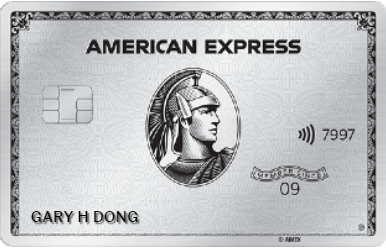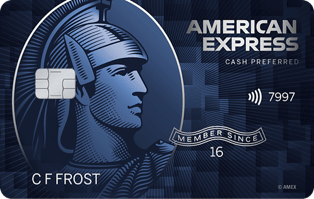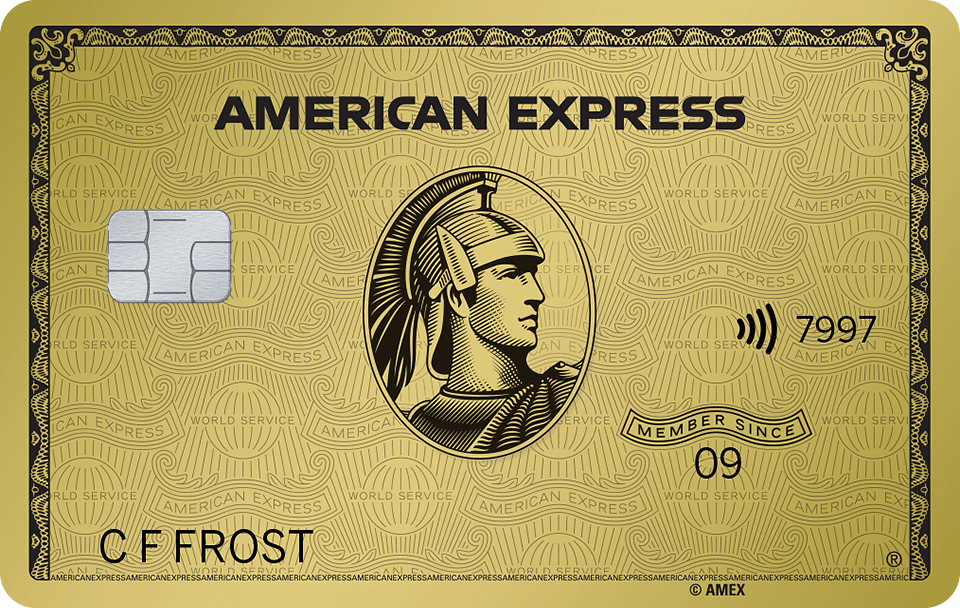- myFICO® Forums
- Types of Credit
- Credit Cards
- Re: What is the average starting limit for applica...
- Subscribe to RSS Feed
- Mark Topic as New
- Mark Topic as Read
- Float this Topic for Current User
- Bookmark
- Subscribe
- Mute
- Printer Friendly Page
What is the average starting limit for applicants with a reasonable salary in the 700-750 range
Is your credit card giving you the perks you want?
Browse credit cards from a variety of issuers to see if there's a better card for you.
- « Previous
-
- 1
- 2
- Next »
- Mark as New
- Bookmark
- Subscribe
- Mute
- Subscribe to RSS Feed
- Permalink
- Report Inappropriate Content
Re: What is the average starting limit for applicants with a reasonable salary in the 700-750 range
Cute, might be right, too.
I think income X (1-dti), disposable income, is a big factor. The bank and product are biggies too. Pen fed and navy seem to go big. Capone, not so much.
- Mark as New
- Bookmark
- Subscribe
- Mute
- Subscribe to RSS Feed
- Permalink
- Report Inappropriate Content
Re: What is the average starting limit for applicants with a reasonable salary in the 700-750 range
@FicoMike0 wrote:Cute, might be right, too.
I think income X (1-dti), disposable income, is a big factor. The bank and product are biggies too. Pen fed and navy seem to go big. Capone, not so much.
Yes, it is missing a lot of things , was just for fun.
It isn't to far off for my profile.
- Mark as New
- Bookmark
- Subscribe
- Mute
- Subscribe to RSS Feed
- Permalink
- Report Inappropriate Content
Re: What is the average starting limit for applicants with a reasonable salary in the 700-750 range
The question is entirely profile, lender, and product-dependent. You could have an 850 score and make $300K, but if US Bank doesn't know you, you're still getting a $500 limit there. The specific cards asked for can be all over the place even at the specified income and score range, especially Savor Ones.







__
Rebuilding, FICO 8s as of March 2025:


 VS4: 709
VS4: 709
- Mark as New
- Bookmark
- Subscribe
- Mute
- Subscribe to RSS Feed
- Permalink
- Report Inappropriate Content
Re: What is the average starting limit for applicants with a reasonable salary in the 700-750 range
@SRT4kid93 wrote:I understand that,
but to a point, income is not the best way to gauge it either. People treat money radically differently. I know people who are able to save shocking amounts of money on lower incomes and I know people who make a lot and spent it fast.
For example,
I know people who make good salaries and still chose to have roommates so they can split all the bills.
I know people with family money and their parents pay all their bills.
You're talking about creditworthiness, conflating approval with the size of the starting limit. Those are 2 completely different things.
A person with huge income and low scores is less likely to get approved than someone with low income and great scores.
But the approval rate has nothing to do with the size of the starting limit.































Total revolving limits 568220 (504020 reporting) FICO 8: EQ 689 TU 691 EX 682
- Mark as New
- Bookmark
- Subscribe
- Mute
- Subscribe to RSS Feed
- Permalink
- Report Inappropriate Content
Re: What is the average starting limit for applicants with a reasonable salary in the 700-750 range
@SouthJamaica wrote:IMHO there is virtually no correlation between credit scores and starting limits.
= = = = = = = = = = = = = = = = =
@SRT4kid93 wrote:
I understand that,
... but to a point, income is not the best way to gauge it either. People treat money radically differently ...
You're both correct. FICO alone (or) income alone is not a good metric for expected starting limits. They both play a role but they are both just one of many parts.
I like to explain that FICO gets you into the party. It plays a "gatekeeper" role since lenders use that single number as a consolidated measure of your previous financial responsibility, and derives how likely you will continue to be responsible and repay a debt. But by itself, it has nothing to do with a starting limit. If you have a perfect 850 FICO but no income, a lender will not grant you credit because they don't know how they will be repaid! Or if you have an 850 FICO but you're burdened with debt, they may doubt your future ability to repay. So while a poor FICO will eliminate you, a good to excellent FICO just takes you to the next step.
Now a lender evaluates those other factors I mentioned. If you've been applying for new cards like crazy or have a limited credit history, even with a good score, they may decide your profile is too risky to approve a card, or they may decide to approve with a small limit, regardless of income.
Let's say you had a great FICO, a profile that meets the lender's standards, but your highest credit limit is $4K. You'd be expecting too much for them to give a $15K approval. They are likely to approve somewhere between $2K and maybe $6K, depending on those other factors. This consumer may have the ABILITY to repay; however, there is a lack of evidence that he has a WILL to repay.
On the other hand, let's say you have a high FICO, high income, low-to-moderate debt and other cards at $25K. This is where the example of how people manage their money differently falls apart. The purpose of the FICO is to predict future behavior based on past behavior. So a high FICO should rule out those who don't manage their debts well. And that consumer, having found his way through all the wickets, may qualify for a $15K to $30K SL depending on the lender and the card profile.
By the way, let's say someone has high FICO but perhaps their income is more moderate relative to debt. They may be approved but for a lower limit. However, both the high income and the moderate income consumers would likely get the best APR advertised in the range from the "terms and conditions" page. High FICO scores often get better APR terms on approvals than moderate to low FICOs.
So FICO matters to get you into the party and for getting the best APR.
Income* matters most for starting limit, but depends on the other factors and overall profile.
*By income, I mean money; so in more broad terms, higher overall or starting limits can be attained not only by income, but also by large assets with a lender (Wealth Management Clients) or heavy spend-and-pay over time, such as for someone with large reimbursed business expenses.






















Business Cards









Length of Credit > 40 years; Total Credit Limits >$936K
Top Lender TCL - Chase 156.4 - BofA 99.9 - CITI 96.5 - AMEX 95.0 - NFCU 80.0 - SYCH - 65.0
AoOA > 31 years (Jun 1993); AoYA (Oct 2024)
* Hover cursor over cards to see name & CL, or press & hold on mobile app.
- Mark as New
- Bookmark
- Subscribe
- Mute
- Subscribe to RSS Feed
- Permalink
- Report Inappropriate Content
Re: What is the average starting limit for applicants with a reasonable salary in the 700-750 range
Let's see.. when my scores were in the 700-750 range it was probably 2017-2019. During that span, I was approved for:
Chase Prime Visa
Chase Sapphire Preferred
BoA Alaska Airlines
NFCU Go rewards
The average SL for these were: $6,350. There's your answer.



"Not everyone who helps you is a friend, and not everyone who challenges you is an enemy."
- Mark as New
- Bookmark
- Subscribe
- Mute
- Subscribe to RSS Feed
- Permalink
- Report Inappropriate Content
Re: What is the average starting limit for applicants with a reasonable salary in the 700-750 range
Thank you for that informative and simple answer. Each persons personal experience was really all I was looking for. So I could then average each persons answer to get the average credit limit. Made up of each person's individual average limit.
now I know that for my credit score and income, my starting limits are pretty low. Not too surprising considering my circumstances.







- Mark as New
- Bookmark
- Subscribe
- Mute
- Subscribe to RSS Feed
- Permalink
- Report Inappropriate Content
Re: What is the average starting limit for applicants with a reasonable salary in the 700-750 range
@SRT4kid93 wrote:
Thank you for that informative and simple answer. Each persons personal experience was really all I was looking for. So I could then average each persons answer to get the average credit limit. Made up of each person's individual average limit.
now I know that for my credit score and income, my starting limits are pretty low. Not too surprising considering my circumstances.
I understood your intent as well, @SRT4kid93, but my point was your premise is flawed on multiple levels. Therefore, any "answer" you get may or may not be representative of what you could expect. It's not that we're not trying to be helpful but just to perhaps make you rethink the question. Here's a few of the potential problems with that methodology.
- Statistically, your survey sampling is likely to be far lower than you'd need for a truly accurate answer. In nine days, you'd had one serious answer (@Gunnerboy), one semi-serious answer (@Kforce), and one answer which was more of a tease (@Anonymous.) We just don't have enough active participants on the forums to give an accurate representation.
- I believe your two variables, income and FICO, are assumed to be constantly upwardly-trending; i.e., that over time, most people have increasing income and increasing FICO. While that may be true for some, I've found that over my 40+ years with credit, my FICOs and/or income have hit those metrics (one or the other) multiple times as income/FICO ebbed and flowed before I ended up with a long-time upward trend. And what my overall profile looked like varied greatly at those various points.
- The question ignores all the countless other profile variables I mentioned in my earlier post. As much as you might like to dismiss them, they are highly valuable in determining an accurate answer to how one person's SL compares to another.
- The question ignores the DATE which the person is reporting. That is significant. For example, I first reached your two criteria somewhere around 1990. According to the US Inflation Calculator website, the value of your minimum $50K salary in 1990 is worth $120,329 today! And FICOs didn't exist before about 1989 anyway! Plus, FICO scoring models have changed over the years, so the FICO scores of today may be quite different from older FICO scores. So of course, any data I would give you for that date is irrelevant on multiple levels including the value of money, variations in FICO models, variations in lending policies, just to name a few. Likewise, if someone reported data from during the 2007-2008 financial crisis or during economic concerns during the COVID-19 pandemic, that data could be skewed by not only time but by the economy. So what you'd be looking for moreso is someone who reached those milestones within the past two years or so to make them more pertinent.
Again, if you want to share some of those data points about your profile from my previous posting and which cards you are pursuing, I'd be glad to give you some feedback on what you might expect. ![]()






















Business Cards









Length of Credit > 40 years; Total Credit Limits >$936K
Top Lender TCL - Chase 156.4 - BofA 99.9 - CITI 96.5 - AMEX 95.0 - NFCU 80.0 - SYCH - 65.0
AoOA > 31 years (Jun 1993); AoYA (Oct 2024)
* Hover cursor over cards to see name & CL, or press & hold on mobile app.